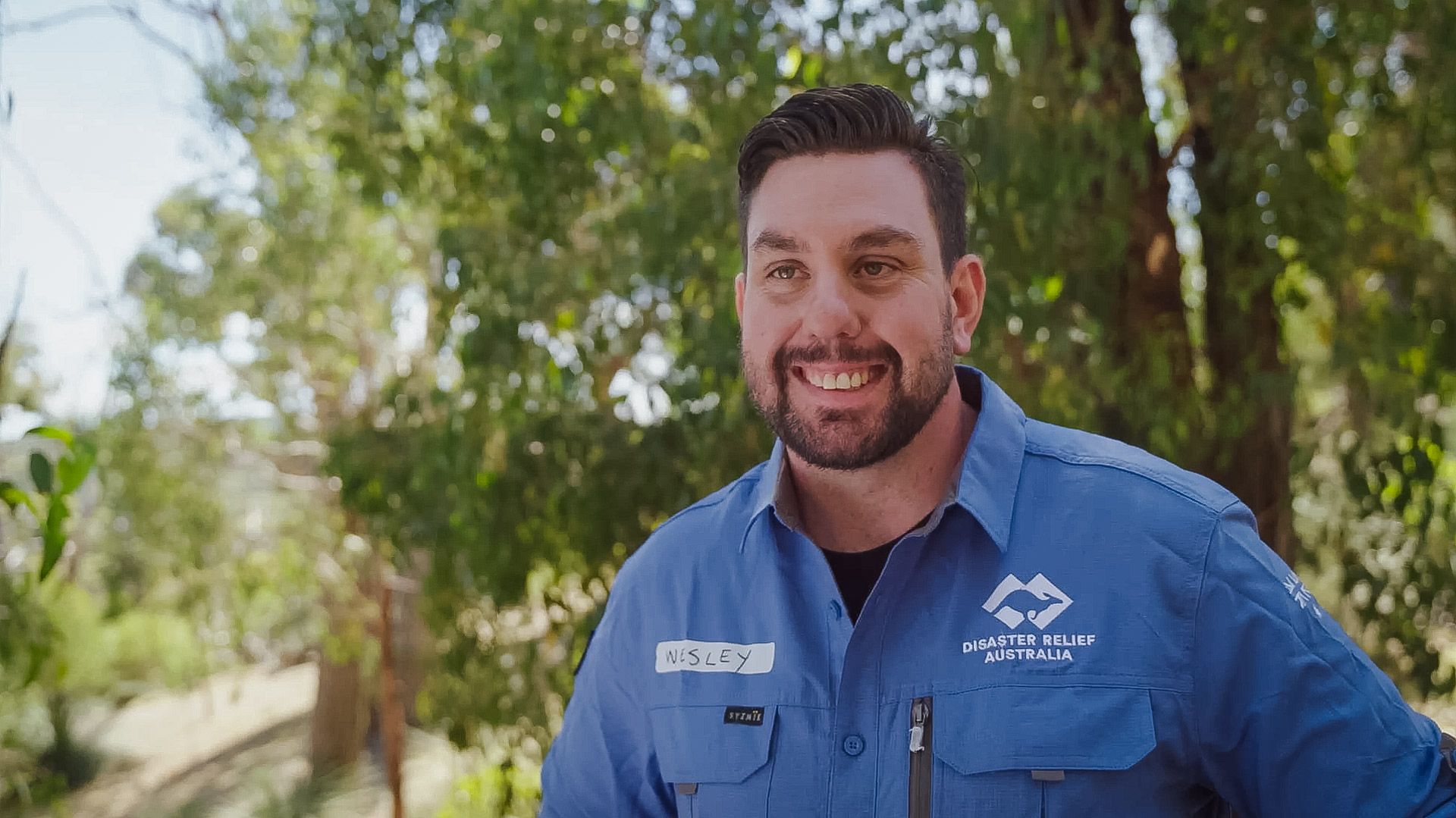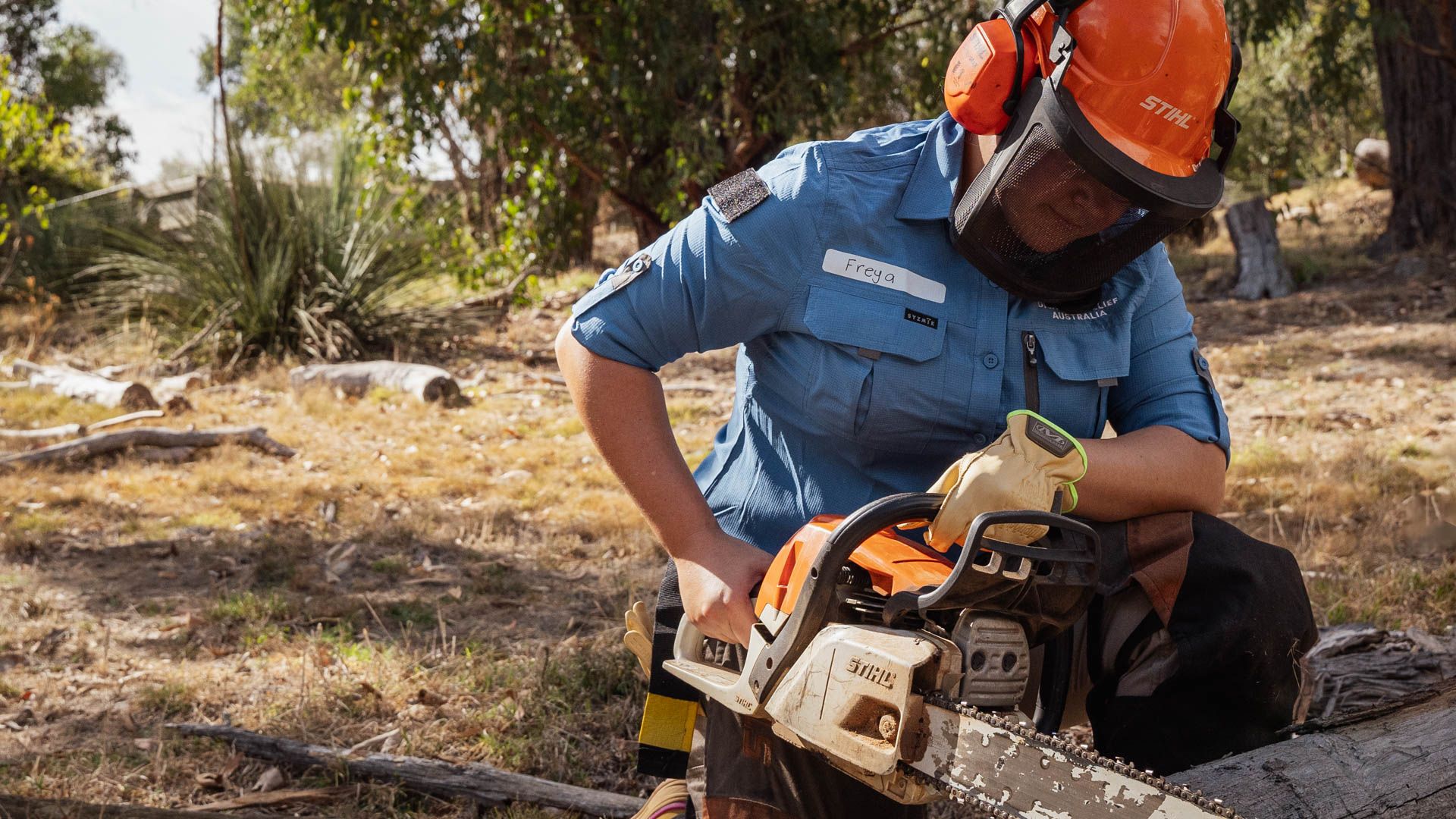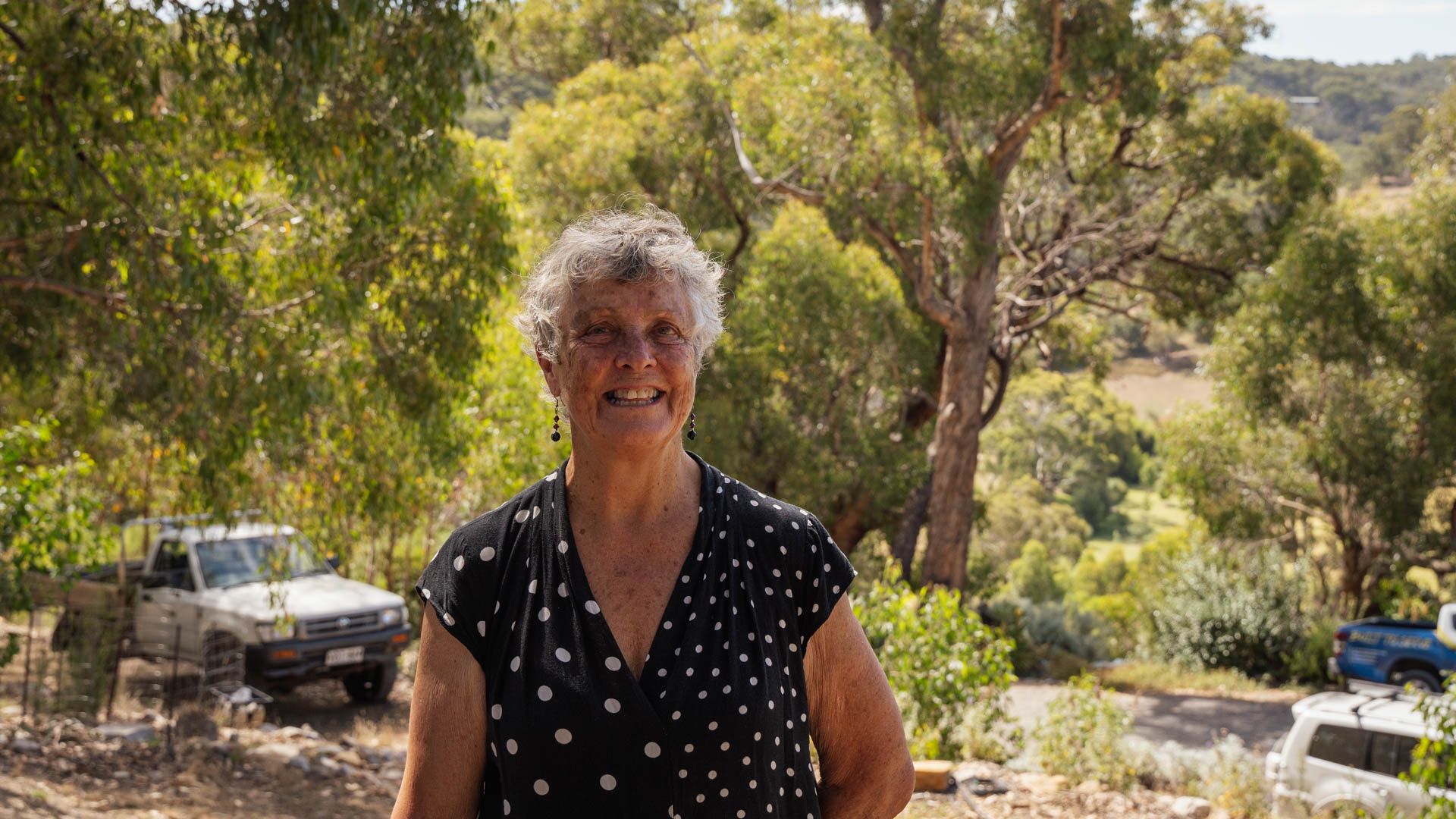



Wesley’s story: Volunteering brought my mental health out of the dumps
Military veteran Wesley Woulleman volunteers for Disaster Relief Australia (DRA), a non-profit organisation who unites military veterans, first responders, and civilian volunteers to aid disaster recovery operations around the world. Wesley took part in the DRA Wellbeing Project, a Movember funded research initiative, seeking to validate the benefits of volunteering to a person's mental health and wellbeing. We sat down with Wesley on site in rural South Australia, as he helped the local community in the wake of recent bushfires in the area. He opened up about the importance of volunteering and how it has helped his life after years of military service.
Thanks for taking some time out to chat with us Wesley, we know you are busy helping clear trees on this property, tell us a bit about yourself.
No problem at all. I’m Wesley Woulleman, 39 years old, based here in South Australia. My background is in the military, I was in the army from 2007 until 2019. I started as a tank crewman on the Abrams tank. I spent five years doing that before transferring into a logistics role, where I stayed until I was medically discharged in 2019.
I began volunteering with DRA in November last year. I have visited a handful of disaster-stricken properties like the one we are on today. There was a fire here a few years ago, the Cherry Gardens fire, that devastated the area. Clean-up efforts like this really help the residents get back on with their lives and help them stand on their own two feet again.
Tell us about your life after your military service?
I don’t think you realise how hard the transition will be into the civilian world. Very much the language and the way you hold yourself is different in the military. My transition, like a lot of veterans, was tough, both mentally and physically. I have had two back surgeries, three shoulder reco’s, two knee surgeries, and an ankle reconstruction. I didn't have a job, I was getting a pension, but I didn't know what to do with the rest of my life, and my mental health really took a downward turn.
It wasn't until I started working with veterans helping them with their claims for the Department of Veterans Affairs, that things started turning around. Through my advocacy work with the RSL and my volunteer work with Hearts for Heroes, I met Paul Broadbridge, the CEO of Australian Partners of Defence (APOD), who offered me a role as Support and Engagement Manager. I started there in 2022 and work there to this day.
Through your work with APOD, what are the challenges you see veterans face with returning to normal life?
I think veterans often leave the military world and lose their sense of purpose. It’s vital to have a plan when you finish your service. Finding that sense of purpose really gives you the motivation to go forward with your life. It did that for me. I was struggling and at the point where, you know, I'll be honest, I probably didn't want to go on with life anymore. But I was lucky to have my families support and figure out a way to find that sense of purpose again.
Thanks for sharing Wesley, so why did you start volunteering with DRA?
Organisations like DRA are great because for most people in military service or in emergency service personnel, it's not about serving yourself, it's about serving others. DRA offers you the opportunity to support the community and feel that sense of organisational purpose rather than that individual purpose. It gave me that direction, it gave me that drive.
It's refreshing to be working in a close-knit team environment again, relying on the people next to you, and just having fun with it. I gain a lot from getting back on the tools and knowing that what we're doing on the ground right now is impacting the people in this area.
What are the benefits you gain from volunteering?
Volunteering brought my mental health out of the dumps. When you see other people around you that might be in the same position, that might struggle with their mental health day to day, it leads to conversations and opening yourself up. A positive outcome is building that team environment where you feel like you've got someone to rely on, you feel like you've got someone to talk to, and then from there you just start to heal.
When I started volunteering, I said to myself, “Hey, I still have some capacity, I still have something to give”. I struggle daily with pain from all my injuries. Even for me being out here today, it's tough. But the positive mental aspects far outweigh the physical struggles.
How else do you look after your mental health and wellbeing?
I see a psychiatrist once a month. I like to think of it as another tool in my toolbox. I find mental health is like working a muscle group in the body. You want bigger biceps, you want a bigger chest; you're going to go to the gym. Your mental health is no different. You need to work on it, and you need to use all the tools in your toolbox to do that. Whether that's seeking support through friends or working in a familiar, collaborative environment, or going out and working in your own workspace and with your co-workers or seeking professional mental health advice.
I rely heavily on my beautiful wife, Karen, and my three kids, Abigail, Zach, and Isabella. They're the cornerstones to my mental health. I'm out here showing them that it's okay to have tough days. When you do have tough days, you've got a community to rely on, and show them how to move forward with their lives when they are faced with adversity.
What do you say to people thinking of volunteering?
I was one of those guys that was broken, and I was told I'd probably never work another day in my life, and here I am. So, take it from me, no matter where you are in life there is always something you can do whether that's physically on the tools or in more of an operations role. There is a way to get involved. You've got nothing to lose and everything to gain.